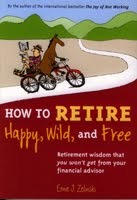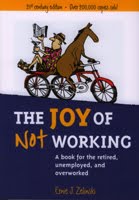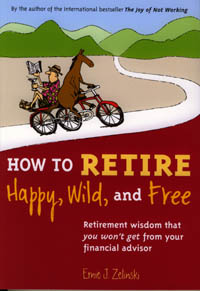
The U.S. federal government already spends $26,000 per year for every American retiree (anyone over 65). Almost half of the American federal budget today is accounted for by and Social Security, Medicare, and Medicaid. If nothing changes, (unlikely, of courese) these three programs will consume more than 100 per cent of the U.S. budget in 25 years.
PIMCO CEO Bill Gross in an article called Skunked states that the U.S. situation is much worse when one includes the unfunded liabilities of Social Security ($8 trillion), Medicare ($22.8 trillion) and Medicaid ($35.8 trillion).
What's more, Silicon Valley venture capitalist Mary Meeker calculated the balance sheet for the country of USA as if it was a company, and estimated that America Inc. presently has a negative net worth of $35 trillion to $40 trillion.
Clearly, this is definitely unsustainable. No doubt there will be major cuts to American social programs along with significant tax increases.
Social Security may still be there twenty years from now but the writing is on the wall. It will be severely reduced. There will be a major restructuring of the American programs including Social Security simply because the system can't afford all the debt:
Here are some retirement quotes about Social Security and money to place things in proper perspective so that your retirement plan and my retirement plan make more sense:
- If you are thinking that government will take care of you [in retirement or otherwise], prepare for a rude awakening — government is planning on your taking
care of it.
— Jon Hanson
There are seven sins in the world: Wealth without work, Pleasure without conscience, Knowledge without character, Commerce without morality, Science without humanity, Worship without sacrifice and politics without principle.
— Mahatma Gandhi
If you want to retire happy, great health is important. The foundation for all happiness lies in health. Physical, mental, or spiritual health — you must use it or lose it!
— from How to Retire Happy, Wild, and Free
May you always have work for your hands to do.
May your pockets hold always a coin or two.
May the sun shine bright on your windowpane.
May the rainbow be certain to follow each rain.
May the hand of a friend always be near you.
And may God fill your heart with gladness to cheer you.
— Irish Retirement Blessing
If you want to be truly prosperous, forget about keeping up with the Joneses. Their prosperity is a facade. They are broke — and in debt big time!
— from the book Zen I Got Rich by Ernie Zelinski
Reflect upon your present blessings, of which every man has many — not on your past misfortunes, of which all men have some.
— Charles Dickens
"The book [The Joy of Not Working] should be "must" reading for
every pre-retiree who dreads the thought of boredom and inactivity in retirement."
— Retirement Planning Journal, (Published by International Society of Retirement Planners)






